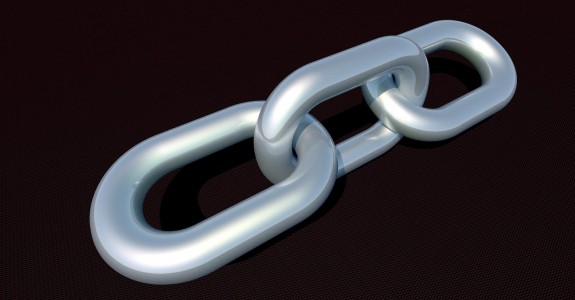Crawlability and indexability are two crucial factors that determine your website's visibility in search engine results. A website that is easily crawlable and indexable is more likely to appear in search results for relevant keywords.
Here are 11 tips to help you improve your website's crawlability and indexability:
1. Improving web page loading speed

Why it matters: Search engines prioritize fast-loading websites. Users also prefer websites that load quickly, which can improve your bounce rate and time on site.
How to do it:
- Optimize images: Reduce image file sizes without compromising quality. Use compression tools or consider using a cloud-based image hosting service.
- Minify CSS and JavaScript: Remove unnecessary characters and whitespace from your code to reduce file sizes.
- Leverage browser caching: Enable browser caching to store frequently accessed files locally, reducing server load.
- Use a content delivery network (CDN): Distribute your website's content across multiple servers worldwide to improve load times for visitors in different locations.
2. Optimizing Core Web Vitals
Why it matters: Core Web Vitals are a set of metrics that measure the user experience of your website. Google uses these metrics to rank websites.
How to do it:
- Largest Contentful Paint (LCP): Measure the time it takes for the main content of your page to load. Improve LCP by optimizing images, reducing server response times, and minimizing JavaScript execution.
- First Input Delay (FID): Measure the time it takes for a user to interact with your page after they first load it. Improve FID by minimizing JavaScript execution and avoiding blocking scripts.
- Cumulative Layout Shift (CLS): Measure the amount of unexpected layout shifts that occur on your page. Improve CLS by using fixed-width elements, preventing dynamic content from appearing above the fold, and loading images and fonts asynchronously.
3. Optimizing crawl budget
Why it matters: A crawl budget is the amount of time that search engine crawlers can spend on your website. If your website is large or complex, you may need to optimize your crawl budget to ensure that all of your important pages are crawled.
How to do it:
- Create a sitemap: A sitemap is a file that contains a list of all of the pages on your website. Submit your sitemap to Google Search Console to help search engine crawlers discover your pages.
- Consolidate duplicate content: If you have multiple versions of the same page, choose one version as the canonical and redirect the others to it. This will help prevent search engine crawlers from wasting time crawling duplicate content.
- Prioritize important pages: Use internal links to prioritize your most important pages. This will help search engine crawlers discover and index these pages first.
4. Optimizing the internal link structure
Why it matters: Internal links help search engine crawlers understand the structure of your website. They also help users navigate your website.
How to do it:
- Create a clear hierarchy: Organize your website into a logical hierarchy with a clear navigation structure.
- Use relevant anchor text: Use anchor text that describes the content of the linked page.
- Avoid excessive internal linking: Too many internal links can confuse search engine crawlers.
5. Submitting sitemaps to Google
Why it matters: Sitemaps help search engine crawlers discover your website's pages, especially if your website is large or complex.
How to do it:
- Create a sitemap: Use a sitemap generator or create one manually. Use our free Sitemap Test tool to check if your website has a sitemap. Learn more about sitemaps here.
- Submit your sitemap to Google Search Console: This will help Google discover your sitemap and index your website's pages.
6. Updating and maintaining the robots.txt file
Why it matters: The robots.txt file tells search engine crawlers which pages of your website they can and cannot crawl.
How to do it:
- Review your robots.txt file regularly: Ensure that it is up-to-date and accurate. Use this free tool to quickly learn more about your website’s robots.txt file.
- Use the disallow directive to block specific pages: If you have pages that you do not want search engine crawlers to index, use the disallow directive in your robots.txt file.
7. Double-checking your canonical tags
Why it matters: Canonical tags tell search engines which version of a page is the preferred version. This can help prevent duplicate content issues.
How to do it:
- Use canonical tags for all pages: If you have multiple versions of a page, use a canonical tag to specify the preferred version.
- Check for errors: Use a tool like Google Search Console to check for canonical tag errors. You can also use our free URL canonicalization test tool: https://seositecheckup.com/tools/url-canonicalization-test
8. Eliminating redirect chains

Why it matters: Redirect chains can slow down your website and make it difficult for search engine crawlers to index your pages.
How to do it:
- Use 301 redirects: If you need to redirect a page, use a 301 redirect. This tells search engines that the page has permanently moved to a new location. Learn more about 301 redirects here.
- Avoid redirect loops: Ensure that your redirects do not create a loop, where a page redirects to itself or another page that eventually redirects back to the original page.
9. Fixing broken links
Why it matters: Broken links can frustrate users and negatively impact your website's user experience.
How to do it:
- Use a broken link checker: There are a number of tools available to help you find broken links on your website. You can find 5 broken link checker tools in this article.
- Fix broken links promptly: Once you have identified broken links, fix them as soon as possible by either removing the broken link or replacing it with an active page.
10. Strategically implementing IndexNow
Why it matters: IndexNow is a protocol that allows you to instantly notify search engines when you have published new content.
How to do it:
- Use a compatible CMS or plugin: Many popular CMS platforms and plugins support IndexNow. WordPress is the most popular Content Management System (CMS) that supports IndexNow.
- Configure IndexNow on your website: Follow the instructions provided by your CMS or plugin. Here is a step-by-step tutorial on how to configure IndexNow on your website if you have a WordPress website.
Note: IndexNow should be used carefully and strategically. It should only be used for meaningful content updates
11. Leveraging structured data
Why it matters: Structured data is a way of marking up your content so that search engines can better understand it. This can help your website appear in rich results, such as featured snippets and carousel results.
How to do it:
- Use a structured data generator: There are a number of tools available to help you create structured data for your website. Google’s Schema Markup Testing Tool is a free tool that is feature-rich and very easy to use
- Implement structured data on your website: Add the structured data to your website's code.
Conclusion
By following the tips in this article, you can improve your website's crawlability and indexability and boost your search engine rankings. Remember, it's important to monitor your website's performance and make adjustments as needed.
If you have any questions, leave a comment below.
